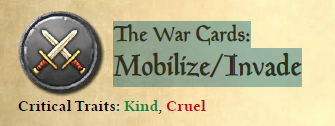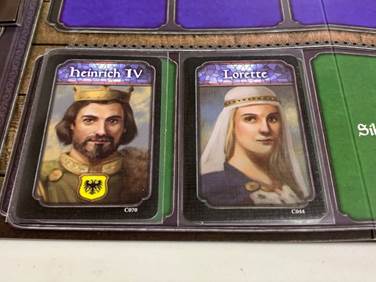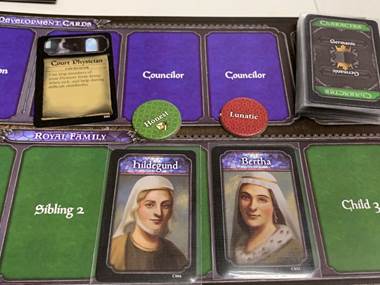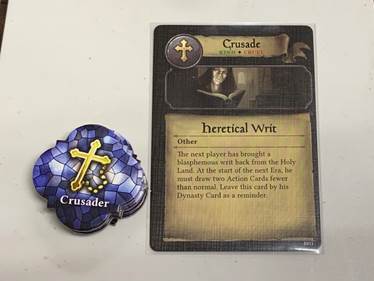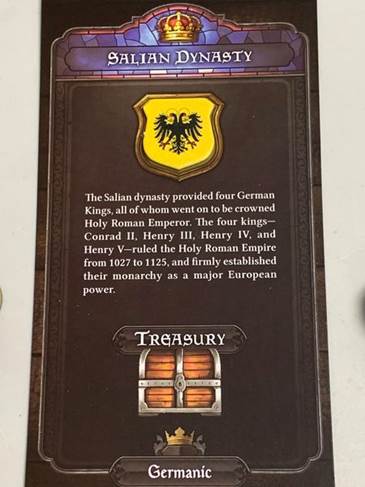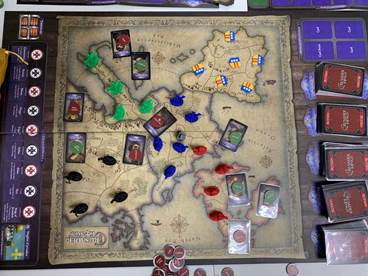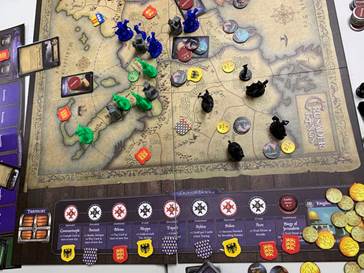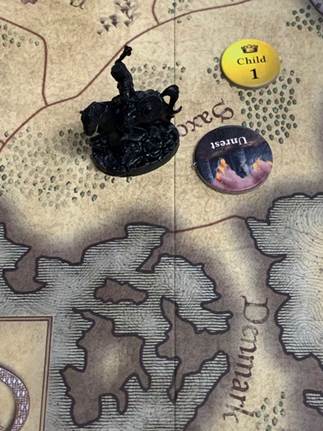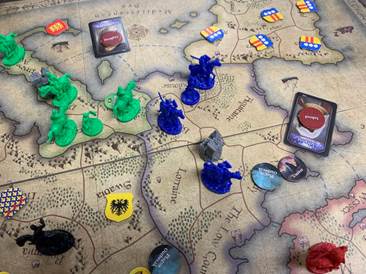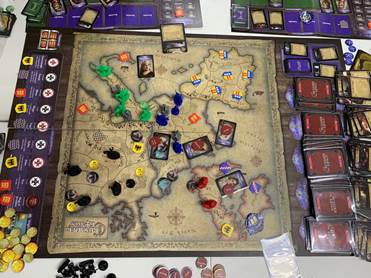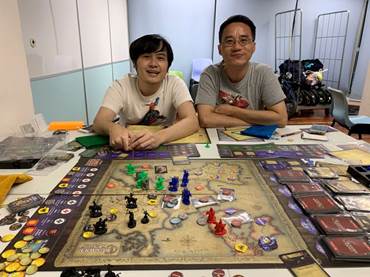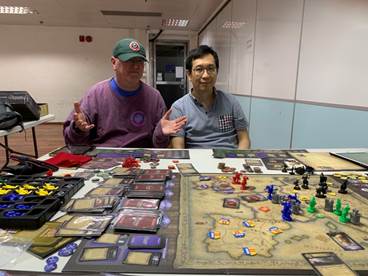|
|
|||||||||
|
|
A Review of Crusader Kings
by Lawrence Hung The PC game is very popular
in Hong Kong among the board wargamers. Last week in the meeting there
was a group playing this PC-converted wargame. Since I have the game I
suggest to play it too. It's almost instantly easy to gather four people
together to play this game. Victor, Lorricount, David and I will join in
the struggle of the Houses during the medieval time, replicating stories
and experiences in the Game of Thrones. There is another PC-converted
board wargame coming - Europa Universalis (right now it is in
Kickstarter stage). Incidentally, both games are produced by the
Scandinavian companies. Does it speak something?
The War Cards Critical Traits I had three daughters in the game and relatively,
my German King was spare from the many plot assassinations by the
Italian player (Victor), unlike David's British Kingdom, who was the
main target. Two of my daughters were married into the nobles (i.e.
independent territories) and thus forming a pact with them. Later on,
they were "invaded" (well technically they are not but just like
Czechoslovakia during WWII, they are annexed "peacefully"), gaining
control of the vassals and consolidating into the Kingdom of Germany. In
the end, both Germany and France (Lorricount) shared the victory with a
tied at 5VPs. The general consensus is that the game is best for five
players instead of four.
The German King and His Wife
Daughters of the German King A key feature of the game is the use of Action
cards. Each player draws up to eight cards to form his hand. There are
five types of Action cards, covering the general aspects of Kingdom
management: Realm, Intrigue, War, Tax and Crusade. They can perform
specific actions in the game plus trigger of events. For examples, Realm
cards can spend golds to build a castle or develop Inventions or
(inviting) Councillors (there is an expansion game to have more of these
cards). Intrigue cards can Plot or Overthrow target player. A player can
conduct up to four plots (Manufacture Casus Belli, Incite Unrest,
Murder, Bribe and Divorce) with a single action as long as they are not
targeting the same territory or character with the same type of plot
action (note: a single player can be targeted multiple times). Each
successive plot cost more golds to act though. A long-term planning to
plot against other with sufficient (six) golds is something that is too
horrific to even think about. Overthrow can cause uprising in a
territory under unrest, removing the original player's control and
ultimately becoming an independent territory.
A writ brought back from the Holy Land by the
German Crusade Action card to summon the Italian
The German Salian Dynasty You need a Casus Belli and an army (Foot Soldier)
mobilized before you conduct an "Invade" action with War cards. The
Mobilize action succeeds automatically but the Invade action requires a
trait check. Additional army support from the adjacent territories
(one's own, or territories in a Pact with you) give extra trait draws,
increasing the chance of success. Surprisingly, these Pact support
doesn't require a mobilized army. Modifiers from Development Cards,
events on Action Cards, and the Crusade Track may also give the Invader
extra trait draws for free. The Crusader Track measures the progress of
the crusaders to the final destination - the holy city of Jerusalem. It
is divided into boxes and confers bonuses to a number of other things
and the effects are cumulative. If trait check for the Crusader action
is successful, a Dynasty Shield of your house is placed on the Crusader
Track. Up to four shields of a particular house can be placed on the
track but you can remove a shield in the lower box (the associated bonus
would be lost) and place one on the higher box.
The bird-eye view of the board
The Crusader Track Lastly, Tax action can be conducted to collect a
gold for each territory under your control. No trait test is required. A
Castle or a Harvest token in the territory gives one extra gold each.
Castles won't get destroyed in a war and so whoever controls it gains
that extra gold. Other modifiers to the amount of gold include events,
Dukedom, Crusader bonus, and Development card effects. In our game, when
I taxed because of empty national treasury, the plague spread out to all
the adjacent territories which failed trait checks (somewhat odd to
relate plague with trait). Territories in plague produce no gold but the
plague would be removed the next time the territories are taxed,
indicating that the money would be diverted to clean up the mess
instead.
Saxony, under Duchess Hildegund, was in unrest
French and Italian territories We ended the game when Britain reached Jerusalem
and became a King of the city. France and Germany both had three tokens
on the Crusader track but France was the first to place two dynasty
shields on it (meaning putting in more resources earlier than any other
houses). Italy was just one short of a Castle to achieve "Builder"
(requires three castles) to earn a VP. German controlled four
territories while France three. So both France and Germany were tied
with 5VPs and shared the victory according to the rules. Italy had four
VPs while Britain had two for the territories they had. No one achieved
"Inventor" with four Development cards.
End game positions Overall, I find the design quite polished, tight and closely knotted together with all kinds of actions, in an attempt to bring out the general mechanics in the computer game. To that end, the boardgame succeeds in literal translations of all the essential elements in the computer game. For any players who are a fanboy of the original computer game, this is a must for "re-living" the world inside the game, i.e. a game of another game.
|

